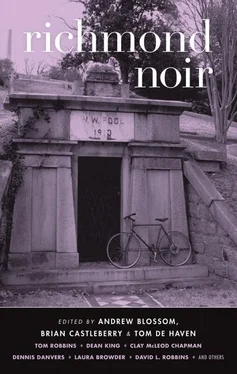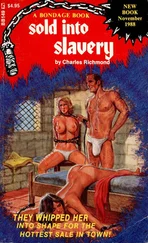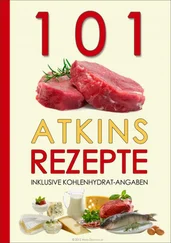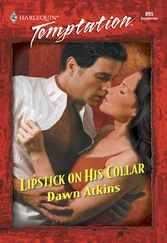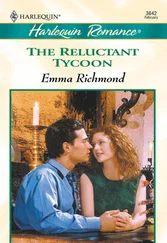X. Atkins - Richmond Noir
Здесь есть возможность читать онлайн «X. Atkins - Richmond Noir» весь текст электронной книги совершенно бесплатно (целиком полную версию без сокращений). В некоторых случаях можно слушать аудио, скачать через торрент в формате fb2 и присутствует краткое содержание. Город: New York, Год выпуска: 2010, ISBN: 2010, Издательство: Akashic Books, Жанр: Детектив, на английском языке. Описание произведения, (предисловие) а так же отзывы посетителей доступны на портале библиотеки ЛибКат.
- Название:Richmond Noir
- Автор:
- Издательство:Akashic Books
- Жанр:
- Год:2010
- Город:New York
- ISBN:978-1-933354-98-9
- Рейтинг книги:4 / 5. Голосов: 1
-
Избранное:Добавить в избранное
- Отзывы:
-
Ваша оценка:
- 80
- 1
- 2
- 3
- 4
- 5
Richmond Noir: краткое содержание, описание и аннотация
Предлагаем к чтению аннотацию, описание, краткое содержание или предисловие (зависит от того, что написал сам автор книги «Richmond Noir»). Если вы не нашли необходимую информацию о книге — напишите в комментариях, мы постараемся отыскать её.
Richmond Noir — читать онлайн бесплатно полную книгу (весь текст) целиком
Ниже представлен текст книги, разбитый по страницам. Система сохранения места последней прочитанной страницы, позволяет с удобством читать онлайн бесплатно книгу «Richmond Noir», без необходимости каждый раз заново искать на чём Вы остановились. Поставьте закладку, и сможете в любой момент перейти на страницу, на которой закончили чтение.
Интервал:
Закладка:
He went out to the car, tiptoeing on the hot asphalt. The key entered the trunk’s lock, pricked the spring, and he heard the satisfying pop. It yawned open, revealing three gray suitcases. One would be innocuous, but three, lined so neatly, sitting so idly — made him think of gravestones in an abandoned field. He staggered back — awed yet again by his smallness and the sheer stupidity of his task. It had sent him north, south, and sideways. They told him to never go in a straight line, to never give the appearance of making sense, to always take the circuitous route of a phantom or an idiot.
He cleaned up in the shower, then returned to his car and drove the speed limit forever. Delaware looked no different to his eyes than Pennsylvania had, and Maryland was but a field of grass. To Virginia then, with a red cardinal on its welcome sign, and the instant and confused surety that he was no longer North.
The buildings were suddenly squatter. There were advertisements for grits, pancakes, and cobblers. A hotel offered rooms for twelve dollars a night. Pines crowded oaks out of the landscape and hawks flew in wide arcs over the crown of his thinning head.
A few hours in and he neared Richmond. He got flustered though, and when 95 and 64 split, he choked. The simplest decisions flummoxed him, and at the last minute he went west on 64. Then came the sense of stupidity that follows such an error. He called himself horrible things. Impatient, he got off the highway. He followed the Broad Street exit and proceeded to drive in circles. Finally he parked his car, preferring to use his feet.
Walking, he came upon a restaurant called Dune, standing two stories tall. Its first-floor windows were closed to the heat, blacked out by plantation shutters. The second floor had French doors that opened onto a short patio, with a sturdy guardrail protecting the diners. He sensed something closed about it: colloquial, clubby, but full of black sheep. He decided that it might be a pleasant place to lunch.
But instead of lunch he had five vodkas with tonic water. The day was clear and the view from the second floor laid the town out like a canvas. He was confused by the sprawl’s repetitiveness, how, in an effort to be neat, people could make things ugly.
He settled into his seat. He settled into the voice of his waitress because it too was a place — a lazy hammock in the sun. The hours passed with his eyes closed not in sleep but in something like mental dawdling.
He felt an angel touch his shoulder and tell him the restaurant closed between lunch and dinner, and so he was asked to leave so that they might clean up. The pretty waitress chatted to him amiably, said she wished he could stay. He heard her but didn’t hear her, for they spoke differently down here, vowels stretched like rubber, the pitch nasal and too sweet.
He left Dune and got into his car. Stationary, he turned the dial and fished out a college radio station. The song was one of the Stevie Wonder numbers from back when he was called “Little Stevie.” The crackle of an old record like fat in a pan. The instruments made noise first and the singers followed. The tune featured gospel-style call and response. Little Stevie lets go an outrageous howl that sends the piano jumping . The engine turned over and purred. He put the car in reverse and swung it to the left real easy. He started to navigate his way through the parking lot. The call comes like it deserves an answer; the singer pleads for assurances . He edged forward at a slow pace and the gravel went crunch underneath. He pulled into the long line waiting to leave the lot. Shifting the vehicle into neutral, he hopped out and rolled the canvas top down. The interior was flooded with light. He pushed the car forward. The response comes: six women, six women with thighs like hams sing a chorus . Finally at the front of the line, he turned his head left to address the attendant. A lanky boy with pimples and a bowl haircut told him that it was five dollars. He went to his wallet and handed over the first thing that his fingers found, producing an enormous tip. He wanted to congratulate himself for this, for having made this kid’s day. The song slows now, not with an abrupt bang but with one of those old-school Detroit fades . Turning right out of the lot, he gathered speed as he crossed over Glenside. The outdoors was all around him. With few cars on the street he felt alone. Then something timidly pulled out on his right-hand side. His foot just could not find the brake, and then the sound of metal going through itself. He had crushed her.
The road is closed and the cops’ lights blaze brightly. Shrill whistles direct traffic elsewhere. The ticket boy says the man slurred, “Good afternoon,” and the Italian is rabid and gesticulating wildly. He is sweating and looks like a tortured, bleeding child. A helicopter makes awful noise overhead. A man with aviator shades looks down and tells the city how to crawl around the accident. There are so many people crying that it is like a wake. But the woman is newly dead and her body is still warm. Three newspapermen drive up in town cars and all smoke cigarettes in the same deliberate way. And the corner of East Broad and Willow Lawn has now become the city center.
In his office miles away, Harry dreams of making love to his secretary, which he has lately had the pleasure of doing. She peeks her head through the door and raises an eyebrow. She’s too young, and her come-hither gestures are unschooled, sophomoric. But she gently rubs her calf against the door and Harry feels like he is breathing pure air, like everything and everyone outside this room is as dour and sluggish as church. She has long bangs and a porcelain face. Her lips are red and easy. But she hasn’t come here to give him satisfaction. She says in a voice that is mock professional that he should go to the newsroom right away, that there is something coming off the wires that needs to make the 6 o’clock feed.
Harry walks over to the wires and sees what is there. There is one scroll of paper, bright yellow. The ink is applied by a machine that runs back and forth over the paper like a cross-cut saw. The effect is that these stories come in line by line, inadvertently making revelations tortuous, overly long. He sees that there has been a car crash. A man and a woman, and the woman is dead. An idea begins to form but tears start to swell in his eyes like blisters and the water washes the page. It is very sunny outside and he suddenly becomes aware of the immense noise of the tiny newsroom. His neck cranes and he looks toward heaven, but all he sees is a coffee-stained ceiling.
Harry gnaws his fingers, says the name of God, and all at once realizes his dirty, fitful prayers have been answered.
Part IV
Nonsuch
But ere we had sailed a league our shippe grounding, gave us once more libertie to summon them to a parlie. Where we found them all so stranglie amazed with this poore simple assault as they submitted themselves upon anie tearmes to the Presidents mercie: who presentlie put by the heeles 6 or 7 of the chiefe offenders. The rest he seated gallantlie at Powhatan in their Salvage fort, they built and pretilie fortified with poles and barkes of trees sufficient to have defended them from all the Salvages in Virginia, drie houses for lodgings, 300 acres of grounde readie to plant; and no place so strong, so pleasant and delightful in Virginia, for which we called it Nonsuch.
— John Smith, on the first English settlement at RichmondThe Thirteenth Floor
by Howard Owen
Monroe Park
Jackson is what you’d call a lackey. He’d been at the paper longer than I had, and he wanted to stay there, which was a problem, because Jackson and I were part of what the new broom apparently meant to sweep clean. We were the Old Guard, and experience wouldn’t get you a cup of coffee around here.
Читать дальшеИнтервал:
Закладка:
Похожие книги на «Richmond Noir»
Представляем Вашему вниманию похожие книги на «Richmond Noir» списком для выбора. Мы отобрали схожую по названию и смыслу литературу в надежде предоставить читателям больше вариантов отыскать новые, интересные, ещё непрочитанные произведения.
Обсуждение, отзывы о книге «Richmond Noir» и просто собственные мнения читателей. Оставьте ваши комментарии, напишите, что Вы думаете о произведении, его смысле или главных героях. Укажите что конкретно понравилось, а что нет, и почему Вы так считаете.
